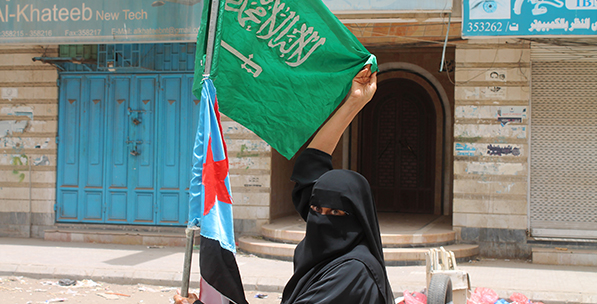The Arab Spring triggered hope for comprehensive change in the Middle East, which assumed its current landscape after World War I. When spring turned to winter due to prolonged civil wars in Libya, Syria and Yemen, the region found itself stuck in limbo, unable to abolish the old order and establish new rules. It was during this transition period that proxy wars, indicative of fierce competition between regional powers, rose to prominence.
The greatest downside of proxy wars has arguably been the redefinition of national interest with reference to religious rhetoric. At a time when state organizations are falling apart, the discriminatory language of armed groups deepened divisions and polarization within the Islamic world. While Islamist discourse could assume a more liberating role, in opposition it tends to promote conflict amid the present challenges – not to mention that most people fail to grasp that Israel is the invisible victor of proxy wars in the region.
The emergence of new conflicts in the Middle East has come at odds with the regional perspective of Turkey more than others. Having struck a healthy balance between democracy, secularism and Islamic considerations, the Justice and Development Party (AK Party) government believed that the key to a bright future was economic cooperation and integration. When the region ended up setting the stage for regional powers heavily invested in hard power instruments, however, Turkey's options in the international arena diminished in number. Not only civil wars in Syria and Libya but also then general and current president, Abdel-Fattah el-Sissi's military coup in Egypt led to the collapse of state-building efforts in the post-revolutionary period. This new situation revealed that soft power alone could not transform the region.
Traditionally, Turkey has looked unfavorably on military solutions to regional issues. As such, the country has thus far resorted to a small number of hard power instruments at a time when all parties to the ongoing conflicts went all out. At the same time, the Turkish government remained committed to showing solidarity with the people in line with its post-Arab Spring principles. At this point, the main problem with most assessments relates to their eagerness to account for Turkey's national policies with reference to the power struggle between Iran and Saudi Arabia. Such analyses, however, fail to consider the overall consistency of Turkish foreign policy.
Nowadays, observers like to identify President Recep Tayyip Erdoğan's efforts to promote closer ties with Saudi Arabia and public criticism of Iranian expansionism as a sign of Turkey joining the Sunni bloc. In truth, the country seeks to broker talks between regional powers, which could help counterbalance the United Arab Emirates and Egypt in Libya, soften the Egyptian government's stance on domestic politics and de-escalate the conflict between Iran and Saudi Arabia in Yemen. Similarly, it would be wrong to identify Erdoğan's statements during his recent trip to Tehran as an about-face. Nor does going back to a passive, impartial and secularist foreign policy represent a better alternative to overcome the current impasse and polarization in the Middle East.
Erdoğan's emphasis on negotiations between regional powers, which remains above sectarian tensions, represents an effort to end region-wide chaos. In other words, diplomacy and political negotiations constitute Turkey's foreign policy priorities. The way to accomplish the country's goals is neither to re-adopt a passive and secularist foreign policy nor to actively participate in regional polarization.
Knowing perfectly well that the U.S. and U.N. are unable to resolve regional issues, Erdoğan seeks to find a way out of sectarian clashes by raising awareness across the Islamic world, having said: "You might have a sectarian view, but if you impose your views on another sect, then the ummah [Islamic society] will be divided into pieces. Today, the Islamic world finds itself under the ris







